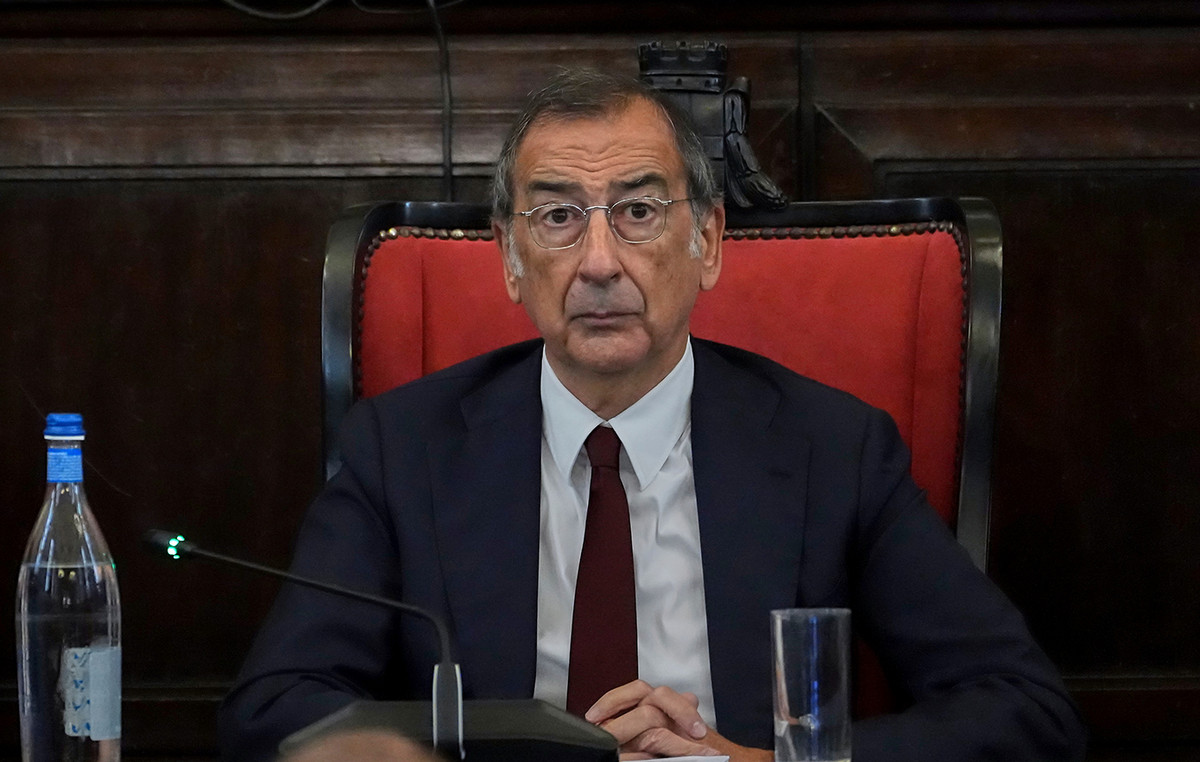Russia has spent months expelling American tech companies or watching them go off on their own because of its war in Ukraine. But the country now finds itself at an impasse with a big tech company: Google.
Many of Google’s services, including search, maps, Gmail and, perhaps most importantly, YouTube, remain available in Russia at a time when Facebook, Instagram and Twitter are not. The situation illustrates the difficult position both sides find themselves in now and the current tenuous state of Russia’s internet ecosystem.
Russia has tried to isolate its internet from the world, but seems to recognize the possible reaction of citizens after banning the most popular services. For its part, Google has spoken out against Russia’s actions, but it also has strategic and moral incentives to stay.
The Russian government continues to try to squeeze the Silicon Valley company, filing a new lawsuit against Google on Friday for its alleged failure to store Russian user data within the country. Google did not respond to a request for comment on this move from Russia.
Weeks earlier, Google’s subsidiary in Russia filed for bankruptcy and halted most of its business operations after the government took control of its bank accounts in the country.
“The seizure of Google Russia’s bank account by Russian authorities has made the operation of our Russian office unsustainable, including employing and paying Russia-based employees, paying suppliers and fulfilling other financial obligations,” a Google spokesperson said in a statement. to the CNN .
However, Google stopped his move to leave Russia altogether, and Russia stopped forcing him to leave.
“People in Russia rely on our services to access quality information and we will continue to keep free services such as search, YouTube, Gmail, Maps, Android and Play available,” the spokesperson added.
Google has taken steps to withdraw its services in Russia, banning Russian state media channels and preventing them from selling ads, as well as cracking down on misinformation about the war in Ukraine.
Meanwhile, Russia’s digital development minister, Maksut Shadayev, has scrapped a total ban on YouTube – one of the country’s most popular online services. “We are not planning to block YouTube,” Shadayev said, according to Russian news agency Interfax. “Whenever we block anything, we must clearly understand that no harm will be done to our users,” he added.
‘Last man standing’
For Google, there is clear strategic value in keeping its services active in a country with more than 100 million Internet users – and a market in which it already has a strong position.
“A number of Google services have gained significant market share in Russia, which the company may want to keep in hopes of an end to the war and a lifting of sanctions,” said Mariëlle Wijermars, assistant professor of cybersecurity and policy at Maastricht University in Netherlands, whose work focuses on Russian internet policy. “Given Russia’s effort to establish digital sovereignty, it may be difficult to re-enter the market.”
But some internet governance experts argue that Google’s choice to keep services running in the country may have more of a moral imperative than a business imperative.
“I think the moral side is a bigger deal,” said Daphne Keller, director of the platform regulation program at Stanford University’s Center for Cyber Policy. “Keeping information flowing to dissidents in Russia, or people who want information from a source other than state media, is incredibly important.”
Google did not respond to questions about its reasons for keeping its services active in Russia, but YouTube CEO Susan Wojcicki last week laid out the role the video platform sees itself playing in the country.
“The reason we are still serving in Russia and we believe this is important is that we are able to provide independent news for Russia,” Wojcicki told an audience at the World Economic Forum in Davos, Switzerland. “And so, ordinary people in Russia can access the same information for free that you can access here in Davos, which we believe is really important to help citizens know what’s going on and get perspectives from the outside world.”
YouTube is used by about three-quarters of Russia’s online population, or more than 77 million people, according to Insider Intelligence estimates. Despite continued warnings from the Russian government to remove content, YouTube remains one of the few digital links between Russia and the outside world, especially as other global platforms have been blocked.
“YouTube in particular is the last man standing, so to speak,” said Alina Polyakova, president and CEO of the Washington DC-based Center for European Policy Analysis. “Google is the last company standing in this broader battle between an authoritarian government and a Western tech company that provides one of the last remaining spaces for free expression in Russia.” Google is one of several companies from which the Center receives “a small part” of its funding in the form of grants, according to Polyakova.

Why Russia turned a blind eye to Google
Russia has used the war in Ukraine to step up its efforts to isolate its internet from the rest of the world, building what some have described as a digital iron curtain. But its decision not to ban Google’s various services shows the limitations of Russia’s more restricted homegrown internet.
Not only is YouTube popular in the country, but Russian officials have long used the platform to spread their own messages, with state media channels like RT and Sputnik reaching millions of subscribers before being taken offline.
“Russia actively uses YouTube to spread propaganda,” said Wijermars. “To reach younger generations who watch less traditional television, the online dissemination of both TV shows and more adapted online formats has been important to expand the reach of their narratives.”
Unlike the local social network VK and the Yandex search engine, there are no local alternatives comparable to YouTube in Russia (the government-backed RuTube failed to achieve the same level of popularity).
“They don’t have a real domestic alternative, and I think they fear a backlash because so many Russians use it. [a plataforma],” said Polyakova. “And frankly, that gives YouTube a lot of leverage.”
YouTube isn’t the only popular Western tech platform Russia has kept quiet. WhatsApp, the mobile messaging app owned by Meta, Facebook’s parent company, is still operational, with the Russian government saying it is exempt because it is a private messaging service and not a public social network.
But while Russia’s leniency towards YouTube has so far extended to Google as a whole, Facebook and Instagram, which are Meta’s other platforms, were the first to be blocked.
YouTube is also just one of several Google services that Russians rely on.
“It is unclear what would happen, for example, to its Android operating system, which is widely used in Russia, if Russia kicks out YouTube,” Wijermars said. “The long list of tech companies that have announced they will leave the Russian market, coupled with the impact of sanctions, makes Russia’s digital economy very vulnerable to such disruptions.”
At the moment, it appears that both Russia and Google are willing to be reluctant and wait for the other to cut the cord.
“I think certainly the Russian government is playing a very delicate game here,” said Polyakova. “Obviously there’s a line they don’t want to cross and force this company out completely.”
Source: CNN Brasil
I’m James Harper, a highly experienced and accomplished news writer for World Stock Market. I have been writing in the Politics section of the website for over five years, providing readers with up-to-date and insightful information about current events in politics. My work is widely read and respected by many industry professionals as well as laymen.







